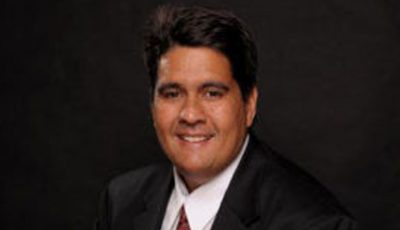WHILE DETAINED IN CHINA FOR 22 MONTHS
Trader says wife, in-law forced to transfer property
Items include gold jewelry, diamonds worth over $300,000
A businessman who claimed that he was detained for 22 months in China during a dispute with business partners disclosed that while he was in jail his wife and daughter-in-law on Saipan were forced to sign several documents purporting to transfer all of his business property and personal belongings such as gold jewelry, diamonds, and precious stones worth over $300,000.
Wanzhong Yu made the disclosure in his cross-claims against Mingan Jin and Jinwei Guo for conversion, false imprisonment, malicious prosecution, abuse of process, defamation, and trespassing.
In his cross-claims, Yu, through counsel Mark A. Scoggins, asked the U.S. District Court for the NMI to declare him and others—and not Jin and Guo—as the rightful shareholders, directors, or officers of Universal Group Development Inc. and J&S Corp.
Yu is demanding unspecified damages against Jin and Guo.
Scoggins said Jin and Guo used their influence over government officials in China’s Jilin Province to have him arrested in May 2012 and detained for 22 months.
On Nov. 22, 2013, while he was still being detained under conditions amounting to torture, Yu was threatened with at least five more years of detention if he would not sign some documents purporting to be his resignation from Universal Group and J&S Corp. and transfer of his shares in the two companies to Guo.
Scoggins said Yu wrote his name on the three documents but did not write his signature.
Less two months later, Scoggins said, on Jan. 5, 2014, Jin coerced Yu’s wife and his daughter-in-law to sign a series of documents purporting to transfer all of Universal Group’s and J&S Corp.’s business property, and his and his family’s personal property to Jin.
The lawyer said the property Jin attempted to coerce from Yu’s wife and his daughter-in-law consisted of real property and keys to the doors of the property, all office equipment, account books, seven vehicles, merchandise of the now defunct Hailan Market, furniture, electrical equipment, gold jewelry, diamonds, and precious stones.
Scoggins said the value of the business and personal property is in excess of $300,000.
Scoggins said Jin promised Yu’s wife and daughter-in-law that Yu would be released from detention if they would sign the documents. Scoggins said the two women signed the documents.
Scoggins said that based information and belief, Jin has already begun liquidating the Universal Group’s and J&S Corp. business property and the personal property of Yu and his family.
Scoggins said between Nov. 22, 2013, and January 2014, Jin and Guo created fraudulent documents purporting to be minutes of a meeting of the shareholders and directors of Universal Group and J&S Corp.
Scoggins said the documents purport to show that Yu and Universal Group’s and J&S Corp. three other shareholders transferred all of their shares to Guo. He said the documents also purport to show that Jin and Guo had been elected as the new officers and directors of J&S Corp.
Scoggins said that in January 2014, Jin and Guo filed the fraudulent minutes of the alleged shareholders and directors meeting as well as a fraudulent annual corporation reports for both companies with the CNMI Department of Commerce.
Scoggins said it was only after Jin and Guo had taken control of the two companies that Yu was released in China in March 2014.
Scoggins said Jin’s and Guo’s actions have caused the closure of Universal Group’s two businesses—Hailan Market and the Oriental Dumpling Restaurant.
Scoggins said that after Yu’s release from detention, Yu returned to Saipan and began making efforts to assert control over the two companies and to reclaim the property.
As a part of these efforts, Scoggins said, Yu sent wrote First Hawaiian Bank, informing the bank about what happened to him in China. He asked the bank to hold the two Universal Group bank accounts, which the bank did.
The dispute among Chinese shareholders first came up after Universal Group sued its alleged former president and shareholder, Yu, for conversion and First Hawaiian Bank for breach of contract.
Universal Group, through counsel Samuel Mok alleged that Yu and the bank have blocked the company from gaining access to $225,000 of its own funds from a business savings account.
Yu maintains that he is still president of the company and that he was detained in China for 22 months caused by political influence exerted by his former business partners.
First Hawaiian Bank has already asked the federal court to allow it to deposit with the clerk of court $224,558.71 in Universal Group’s savings account.
First Hawaiian Bank, through counsel Richard L. Johnson, requested the court to order that after depositing the funds in the account with the clerk of court, the bank be discharged from the lawsuit.



























